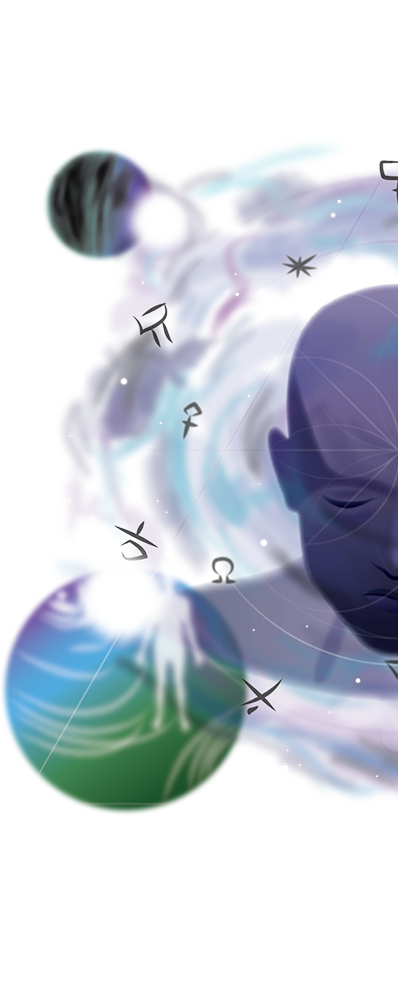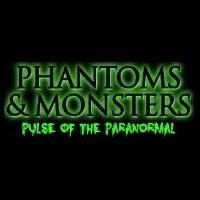By Rosemary Ellen Guiley
Copyright Visionary Living, Inc.
Can a house become “unhaunted” on someone’s say-so? Apparently it is no longer desirable or convenient for Thornewood Castle, a luxury bed and breakfast in Lakewood, Washington, to have ghost and poltergeist activity — despite a documented history of paranormal events. About a decade ago, after being featured in two Stephen King TV movies, the proprietors of Thornewood promoted the B&B’s hauntings, attracting many guests who wanted to have a spooky experience.
I visited Thornewood twice, and the second time had the entire place to myself all night — not even a staff person was present. I experienced unexplained phenomena, including the billiard-playing ghost, footsteps on the central staircase, and ghostly voices in Anna’s Room. I also interviewed Deanna Robinson, one of the owners, at length about her paranormal experiences there.
Thornewood has not changed ownership, but it has gone through a make-over to erase its paranormal past. The establishment now caters to weddings and romantic getaways, billing itself as “the house that love built” (the original owner built it for his wife, as did most men at the turn of the 20th century.)
There is no mention of hauntings in the history on the website. Under FAQ, there is a question, “Is Thornewood Castle haunted?” Answer: “Only in the movies!” followed by a smiley face.
I queried Thornewood about the denial of paranormal activity and received no response.
Thornewood is a spectacular property on lovely grounds, and indeed makes a fine place for a wedding. But I wonder where all the ghosts went now that they are no longer official?
Below is my entry on Thornewood that is featured in my Encyclopedia of Ghosts & Spirits third edition. I had the cooperation of the owners in adding the place to the book.
THORNEWOOD CASTLE Haunted manor house and bed-and-breakfast in Lakewood, Washington. Thornewood Castle was used as the setting for the Stephen King made-for-television films, Rose Red and The Diary of Ellen Rimbauer.
History
Thornewood was built from 1911-1914 by Chester Thorne, a Quaker and prominent businessman in Tacoma, Washington. Thorne was born in 1863 in New York to an English lineage that had been in America since before the Revolutionary War. Thorne graduated from Yale University in 1884 with a bachelor’s degree in philosophy, and went to work as an engineer for the Pacific Railway Company. In 1886, he married Anna Hoxie of Des Moines, Iowa. In 1890, the Thornes moved west to Tacoma, where Chester rose in business, becoming director of the National Bank of Commerce. He played a major role in a building boom, and when depression hit Tacoma in 1893, he helped the city weather through it. He also quietly helped many persons with financial assistance, expecting nothing in return.
Thorne began construction of the manor house in 1911, building it on a tract of 100 acres on the shore of American Lake in Lakewood, south of Tacoma. (The house is called a castle because of a parapet on one side.) Construction took three years and cost about $1 million (the equivalent of about $30 million in modern times). Thorne hired a prominent architect, Kirtland Kelsey Cutter, to manifest his vision of a grand, Tudor/Gothic residence. Many materials were imported from England and Wales. Massive oak doors were acquired for Thornewood’s front doors. Stained glass pieces dating from 14th to18th centuries were bought from a castle in England, and were placed throughout the house. Red brick facing from Wales was used on the exterior. A fine oak staircase from an English castle was used for Thornewood’s central staircase. Thorne topped it all off by purchasing artwork dating to the 15th through17th centuries that had been collected by an English duke All of these items had to be shipped around the African Horn at tremendous cost.
When it was finished, Thornewood was more than 27,000 square feet with 40 rooms, and 18-inch thick exterior walls. Thirty-five acres were turned into elegant English gardens, including a sunken garden with a pool. Over time the manor house was expanded to 54 rooms, including 28 bedrooms and 22 baths.
Thornewood was the scene of elegant living and entertaining. Thorne loved his home, and worded his will to protect its integrity. He died in 1954 and left his estate to the Thornes’ daughter, Anna Stone. His will specified that the property was never to be divided and sold in pieces, and the manor house was never to be altered into apartments. In 1959 Stone sold the property to a developer, Harold St. John, who immediately took legal measures to break the will. St. John divided the land into lots and sold them, and remodeled the house into apartments. The house deteriorated over time, and was sold to other owners. Eventually it was turned into a bed and breakfast. In 1982, Thornewood was placed on National Historic Register.
In 2000, Thornewood was purchased by Deanna Robinson and her husband. ABC/Disney was searching for a house to serve as the setting for Rose Red, about an evil, intelligent house that kills people to feed off their life force. Dozens of properties in the United States and Canada were considered. Producers were immediately interested in Thornewood, which closely resembled the house described by King in his script.
ABC/Disney contracted to use Thornewood, agreeing to make renovations to restore the house to its 1911 condition. Small rooms and apartments were eliminated, and ceilings, walls, light fixtures and floors were restored. The gardens were improved. The total cost of the renovation was between $500,000 and $600,000. Filming was done on site in 2000, and the film aired on television in 2002. The success of Rose Red led to a prequel film, The Diary of Ellen Rimbauer, to explain the history behind the haunting. The Diary of Ellen Rimbauer also was filmed at Thornewood. Many of the scenes in both films show the real house, but sets were also created in Hollywood of other rooms that do not exist at Thornewood.
The Robinsons run Thornewood as a luxury bed-and-breakfast. Bedrooms are named and each has a unique decor. The Roninsons added their own furniture and extensive fine art collection. They do not live on the premises, but reside in a smaller and more modern house adjacent to Thornewood.
Haunting phenomena
Thornewood had ghost activity prior to the films, but reports of haunting activity increased after 2002, with many guests coming to Thornewood in anticipation of experiencing something paranormal.
According to Deanna Robinson, phenomena manifested shortly after they moved into Thornewood, though no one expected anything unusual to happen. The first phenomenon was a light bulb that would be repeated found unscrewed from a lamp in the smoking room, located off to side of the Grand Room. Robinson would put the bulb back in, only to find it out of the lamp again the following day. This went on for two weeks. Robinson thought it might be a sign from Chester Thorne, and she asked him to stop. It did, but then happened periodically, apparently when Thorne or another ghostly resident wants Robinson’s attention.
Other early phenomena are:
sounds of glass and china breaking, though no actual broken objects are found
old light globes found shattered
movements and displacements of small objects
apparitions
cold breezes
music, whispering, voices and footsteps
sensations of being touched, especially on the shoulder from behind
strange shoots of light
apparitions of men and women dressed in Elizabethan garb and sometimes smelling of oiled leather coming through the huge oak doors into the Grand Room
ghostly forms in the gardens, along with sensation of the presence of angels and fairies.
Robinson believes Thornewood enjoys spiritual protection, and that it helps to impart a healing and restorative energy to people who stay there. Native American laborers who worked on the original construction planted wishbone stick charms to protect the land against evil spirits; some of these charms have been found. Ghostly activity is most pronounced at dawn and especially dusk, when the place takes on what Robinson describes as a Brigadoon-like atmosphere.
Diaries left in the bedrooms for guest comments contain numerous accounts of apparent ghostly encounters, most of them since 2002. The most common phenomena are flickering lights, objects being moved about, mysterious footsteps, rattling doors and windows, malfunctions of electronic equipment such as cameras, tape recorders, cell phones and pagers, and the sense of being watched by unseen presences. Ironically, the bedroom known as the Rose Red Room, decorated especially for the film, is one of the least active.
Thorne’s ghost haunts the house and grounds. His ghost is occasionally seen walking across the lawn; he is wearing his favorite brown riding suit and boots, and is carrying a riding whip. His bedroom on the second level is the second most active room in the house. Thorne died here. His ghost comes through the door, walks past the bed and disappears in the bathroom. Guests have found objects rearranged and the toilet seat left up. The bedroom is known as the Money Room. Thornewood lore holds that if people who have financial trouble sleep in his room, Thorne’s ghost will come to their aid and help bring a turnaround in their luck.
The ghost of daughter Anna haunts her large bedroom down the hall from Thorne’s room. Anna’s Room is popular with brides and wedding parties, and it is the most active room in the house. Anna contracted scarlet fever at age 16 and lost some of her hearing. She had to wear a hearing aid that was noticeably large. A shy girl, she was embarrassed by it, and so did not participate in many of Thornewood’s social events. Instead, she would sit on the settee of her bedroom bay window, watching lawn parties below. Guests in the bedroom catch a glimpse of a ghostly girl sitting looking out the window; her demeanor is sad and wistful. Dark shadows also have been glimpsed by the bay window.
According to one diary entry, guests staying in Anna’s Room heard the pianodownstairs in the Grand Room play in the early morning hours, as well as the sounds of someone pacing in the upstairs all evening and in the early morning hours.
If Anna’s Room is not occuppied, guests sometimes hear noises emanating from it at night: male and female voices talking, doors opening and closing, and the sounds of heavy furniture being moved about. Everything is in place if the room is inspected, although drawers on the armoire have been found pulled open.
Directly across the hall from Anna’s Room is the Grandview Room, the site of frequent activity. A woman’s voice hums a song, soap disappears from the bathroom, and a candle mysteriously falls from its holder. Guests’ alarm clocks have gone off in the middle of the night. Most strange is a ghostly servant who once organized a guest’s shoes and folded his socks over them.
A male ghost associated with Anna haunts the downstairs in the Grand Room. The apparition has been reported for at least 50 years, making it perhaps the oldest ghost on the property. Beneath the grand staircase is a bathroom and linen closet. A ghostly man in a brown suit comes out of the bathroom, crosses the Grand Room, goes into the dining room and disappears out the glass doors to the patio. Anna, married twice, and endured an unhappy and tragic first marriage. She caught her first husband in the bathroom linen closet molesting their daughter. Enraged, she got a gun and shot him in the eye. The shot did not kill him. They were divorced. However, the ghost is believed to be Anna’s second husband, based on eyewitness descriptions matched to old photographs.
Another of the older ghosts at Thornewood is based on lore that a child drowned in the lake, witnessed by the mother from the window of one of the rooms. Ghostly screams are reported heard.
On the third floor, the Gold Room has haunting activity, including a smell of lavender and poltergeist movements of toiletries, especially women’s articles. Apparitions of men and women have been seen, in particular he ghost of a sad-looking woman who wears her hair up on her head. According to Deanna Robinson, the room is one of the most spiritually protected rooms in the house and has the presence of angels and fairies.
Down the hall from the Gold Room is a billiard room. Footsteps have been heard coming up the staircase and entering the billiard room, followed by the sounds of someone playing billiards. Upon inspection, the room is found to be empty, and the pool cues are on the billiard table.
Some of the film crew personnel of both productions, especially The Diary of Ellen Rimbauer, reported mysterious phenomena as well.









